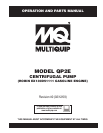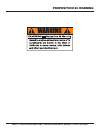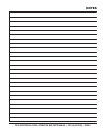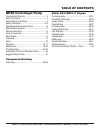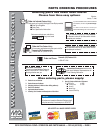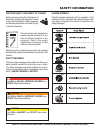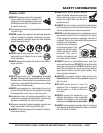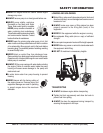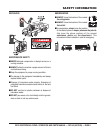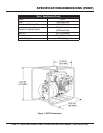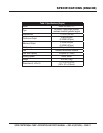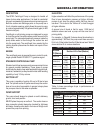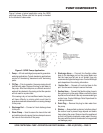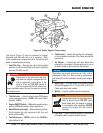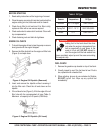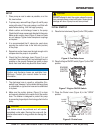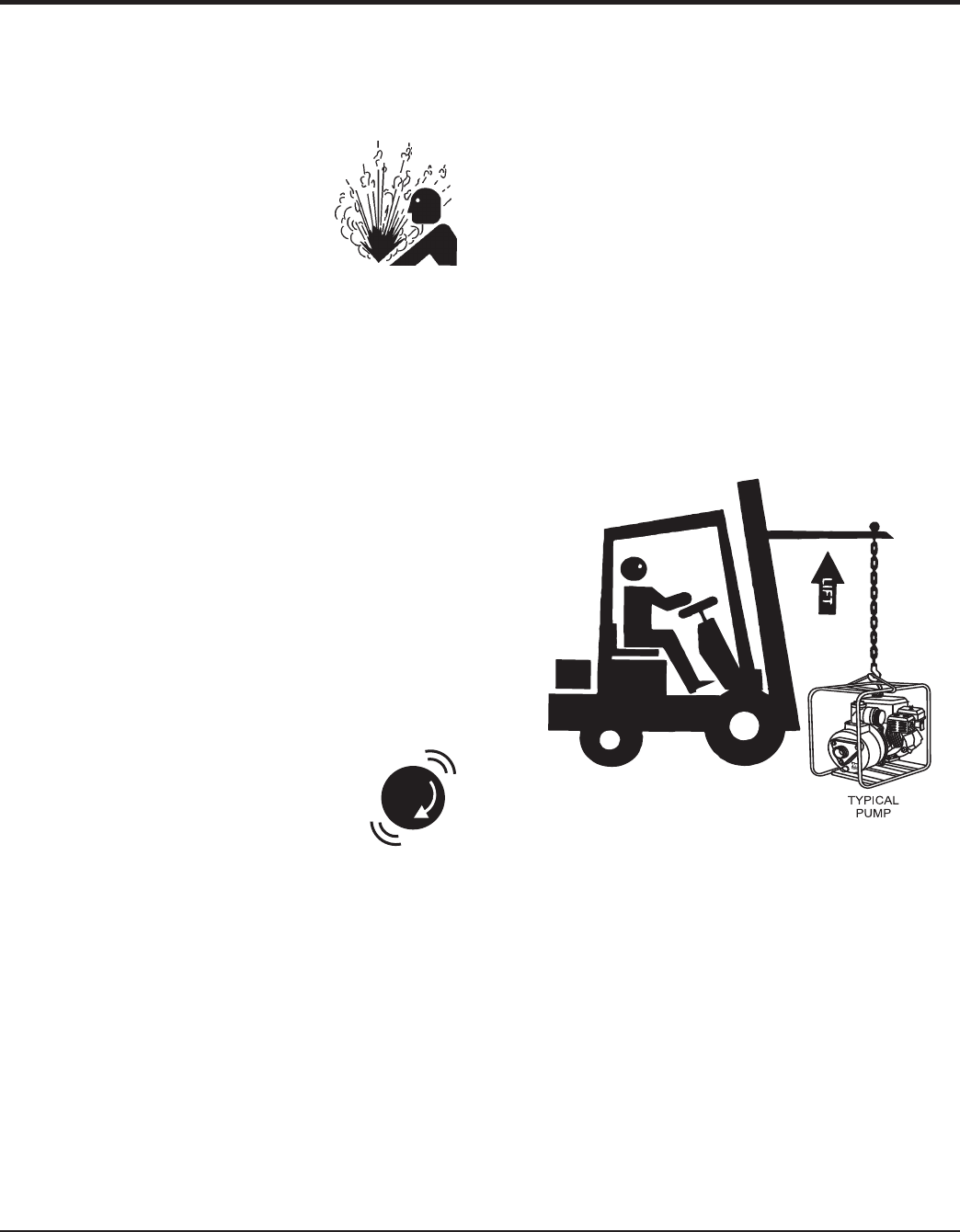
PAGE 8 — QP2E CENTRIFUGAL PUMP • OPERATION AND PARTS MANUAL — REV. #0 (02/12/09)
SAFETY INFORMATION
■
NEVER run engine without air cleaner. Severe engine
damage may occur.
■
ALWAYS ensure pump is on level ground before use.
■
NEVER pump volatile, explosive,
flammable or low flash point fluids.
These fluids could ignite or explode.
NEVER pump corrosive chemicals or
water containing toxic substances.
These fluids could create serious health
and environmental hazards. Contact
local authorities for assistance.
■
NEVER open the priming plug when pump is hot. Hot
water inside could be pressurized much like the radiator
of an automobile. Allow pump to cool to the touch before
loosening plug. The possibility exists of scalding, resulting
in severe bodily harm.
■
NEVER block or restrict flow from discharge hose.
Remove kinks from discharge line before starting pump.
Operation with a blocked discharge line can cause water
inside pump to overheat.
■
ALWAYS fill the pump casing with water before starting
the engine. Failure to maintain water inside the pump
housing will cause severe damage to the pump and
mechanical seal.
■
In winter drain water from pump housing to prevent
freezing.
■
NEVER tamper with the factory setting of
the engine governor. Personal injury and
equipment damage can result if operating
in speed ranges above the maximum
allowable.
LOADING AND UNLOADING
■
Before lifting, make sure that equipment parts (hook and
vibration insulator) are not damaged and screws are not
loosened or lost.
■
ALWAYS make sure crane or lifting device has been
properly secured to the lifting bail (hook) of the
equipment.
■
NEVER lift the equipment while the engine is running.
■
Use adequate lifting cable (wire or rope) of sufficient
strength.
■
Use one point suspension hook and lift straight upwards.
■
NEVER allow any person or animal to stand underneath
the equipment while lifting.
■
DO NOT lift machine to unnecessary heights.
TRANSPORTING
ALWAYS shutdown engine before transporting.
Tighten fuel tank cap securely and close fuel cock to
prevent fuel from spilling.
ALWAYS tie down the equipment during transport by
securing the equipment with rope.



